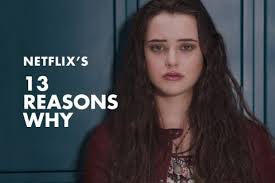Hit Netflix show ’13 Reasons Why’ is undoubtedly a hot topic. Everyone has an opinion and two clear sides are developing around whether its ok for our kids to see, or it’s not. But what if part of the real learning isn’t just for our kids but also an opportunity for us to check in with our own shit. As important as it is to discuss the show with our kids they already know the content well, it’s their lives on the screen. Perhaps we should be making sure we also discuss it with our partners, our colleagues, our friends and even our own parents.
This generation of teens didn’t invent lust, longing and the overwhelming desire to fit in but their experience comes with a lens that makes them more visible than ever before. That’s a scary and sometimes exhilarating place for them to be, but for us it can be terrifying. They are developing a knowledge base and language designed to exclude us and we’re forced to the realisation that we’ve become the people we once railed against in our teenage years.
It's instinctual for us to protect our youth when and where-ever we can but can we in good conscience shut down this conversation about the reality of their lives, and silence the voice of their experience just as its beginning to be heard? Can we really say this show needs to be censored when we sit by while they watch Game of Thrones and throw sex workers under cars in Grand Theft Auto?
Aspects of the show give mental health professionals and parents justifiable cause for concern and this shouldn’t be minimised. There are several thought provoking essays available online that discuss their perspective however there is also room for us to pause and reflect on the aspects of the show, and the conversation, that also emotionally affects us as parents.
13 Less Obvious Reasons Why We’re Uncomfortable With ’13 Reasons Why’
- We’re ashamed of our own behaviour as teenagers
- It’s too hard to be fully open to our teen’s pain
- We’re at a loss to know how to help
- It’s too painful to remember our own teenage experience
- We can’t bare to imagine our own child (or ourselves) as a perpetrator
- We’re modelling bullying or disrespectful behaviour on and offline
- We’re afraid we’re out of touch with young people and we’re embarrassed by that
- We’re struggling to cope with our loss of status with our children
- Remembering our own teenage lives may mean forgiving or apologising to our own parents
- We survived without the help we needed and it ‘didn’t do us any harm’
- We’re hurt by their rejection of us and that reduces our empathy for them
- We feel we’re losing control of teens and censoring them makes it feel like we’re gaining some back
- We’re afraid to know the truth about their lives
Sarina Dickson is a teacher, author and parent in Christchurch, New Zealand. Alongside registered psychologist Julie Burgess-Manning she co-authored the six books in the Worry Bug series aimed at children, their families and teachers to support mental wellness. You can purchase the books here, and read or listen to Rising Tide or He Tai Pari here.

 RSS Feed
RSS Feed